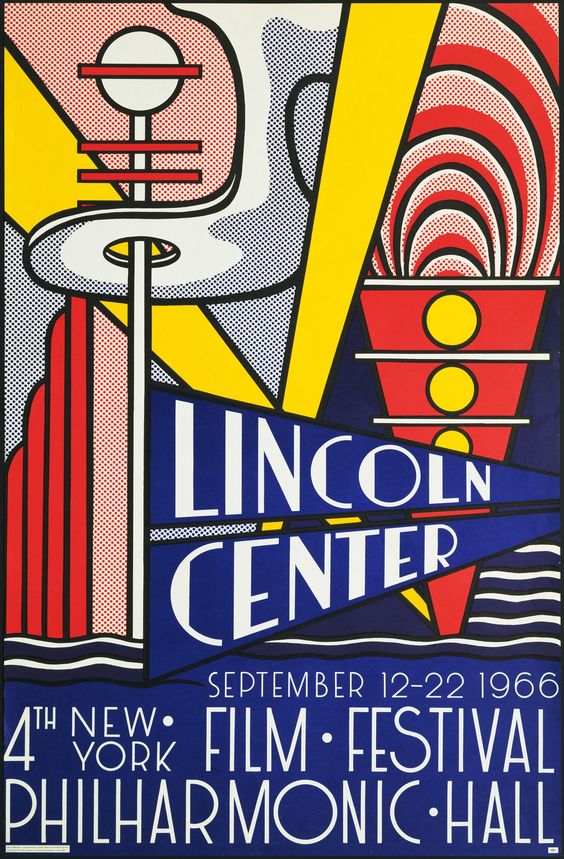NY Phil tears up Lincoln Center’s best-laid plans
mainDeborah Borda at the New York Phil has persuaded the Lincoln Center to abandon its protracted and expensive renovation plan. A new model, say both sides, will be announced soon.
press release:

New York, NY (October 3, 2017) — After a concentrated period of deep review and thoughtful evaluation, Lincoln Center for the Performing Arts and the New York Philharmonic have decided to re-envision the strategy that will steer the forthcoming renovations of David Geffen Hall. The two organizations will forgo the original design proposal, and instead move forward with a new master plan—one that will be ambitious, but will center primarily on improving audience and artist experiences inside the hall, and will include phased renovations.
The goal of the project remains to create a welcoming and world-class concert hall, which will include a reimagined hall configuration, with a focus on acoustics, and enlivening the hall’s lobbies and other public spaces. This re-envisioning has the major advantage of keeping the Philharmonic in its home without prolonged periods of displacement.
Lincoln Center and the Philharmonic are grateful to the early design team for its completed work, which helped to reveal and clarify many complexities, both logistical and technical, in the project. These complexities compelled the two organizations to perform additional due diligence on the vital project and, as a result, to develop a new approach to renovate the iconic structure.
Lincoln Center and the New York Philharmonic will announce complete details of the new plan at a future date.





1. NYP is still just a renter at Lincoln Center (the Met owns (is there another major American orchestra that doesn’t own its home?)) and so the landlord nixed the tenant’s unrealistic renovation plans (what? you want to lower the floors and move all the plumbing, and you only have a budget of $5,000 and you’ve only got $1,000 in your bank account, and you want to move back in to live in 2 months?).
2. Lincoln Center is thinking: what guarantees do I have that the New York Philharmonic is going to be around for another 100 years, or even be able to pay the rent until their lease is up? The existing hall is just fine for everything else but the New York Philharmonic!
The Dallas Symphonies magnificent halls (acoustically and architecturally) is owned by the City of Dallas. The DSO is the primary renter. I can only guess why this arrangement was made. It could have been to shed the DSO of house maintenance costs. Smart people set it up. (Ross Perot was one).
The National Symphony in DC is not the owner of the Kennedy Center. I believe that is owned by the National Park Service. There may be others.
The existing hall is AWFUL. Acoustically, it is the worst of the halls occupied by the ‘big five’ orchestras of the United States, even though Symphony Center in Chicago has significant limitations. The Philharmonic deserves better – its relatively low reputation is a product of the environment in which it is forced to perform. In recent years the physical condition of David Geffen Hall has been neglected, perhaps with the thought that it wouldn’t be around for long. I recently had the experience of hearing Mahler (the 5th with Van Zweden, and the lst with Nelsons) in David Geffen Hall and Boston’s Symphony Hall on two consecutive nights – the comparison of acoustics is shocking.
The only hope is that during the Mostly Mozart season, when the orchestra platform is moved significantly forward, and audience seating is placed in what is usually the platform area, the acoustics seem noticably better.
It is NOT awful. What do you expect, the sound of a stereo system? That seems to be what most people think a hall should sound like. Unless it has changed a lot since the 1980s and 90s, it is a respectable hall, with a consistent sound in all areas, some warmth and some brilliance. There are many much worse! No, it’s not a masterpiece, but that’s what you get from hiring modern architects.
Philadelphia’s Academy of Music was the best hall I experienced, better than Carnegie Hall, so of course the Philadelphia Orchestra deserted it for an incompetent modern hall. Orchestra Hall in Minneapolis is truly awful. It is so over-reverberant, that brass and percussion notes bounce off the walls, the strings’ notes hang in the air like raindrops, long after they should have decayed. It’s a bizarre effect as well as its look. And guess who the acoustician was…
That plan of fifteen years back — to move the NYP to Carnegie Hall — was it really such a bad idea? A clash of artistic visions was cited at the time, could it have been instead a clash of administrative bureaucracies, sheltering their jobs & status?
The New York Philharmonic performs up to four times a week during the season. There is no room for that on top of all of the events – including many visiting orchestras – presented by Carnegie Hall itself – as well as all of the rental events. I don’t think anyone would want these events to move to the acoustic desert of David Geffen Hall – imagine hearing the Vienna and Berlin Philharmonics there! On the rare occasions that the Philharmonic performs in Carnegie – unfortunately it hasn’t happened for a few years – the results are revelatory.
The unilateral proposal by the Philharmonic’s board to move to Carnegie Hall indicated a lack of understanding of the scope and depth of New York’s musical life.
I’m looking at the October schedule, after the opening — it hardly looks super-crowded for the main hall. Losing some of the “visiting presenters” will not harm NY’s cultural life. And then there are the afternoon slots, almost every one of them empty — these might be even preferable to evenings for today’s audience, I’m being serious. Maybe too the NYP plays too many concerts, for current demand; maybe too they should move around the region a bit, extend an opportunity for the full symphony experience, broaden support.
The whole Geffen building is hopeless, pull it down. How important is classical music, actually, to this tycoon of the junk culture? Perhaps the nam-ee would settle for a statue of himself above the plaza fountain.
Another big reason the move didn’t happen was that the musicians didn’t want it. Parking is difficult and expensive by Carnegie hall, to say the least, and the Carnegie Hall’s location is further away from major roads. It is right in the middle of a major traffic zone. Many of the musicians in the Phil live in New Jersey or the Tarrytown area of New York, where they can commute in reasonable time on the Palisades Parkway. Living in Manhattan is no longer an option, even for the well payed musicians of the Philharmonic. It’s just too expensive.
In addition, many of the musicians teach at Julliard, and their current location at Lincoln Center makes it practical for them to balance a busy rehearsal schedule with teaching there.
yes I guess best to base decisions that affect the future of the orchestra on how easy parking is for the musicians.
Perhaps the Mayor could create a NYPHIL- or CLASSICAL-category license plate, so the players could park anywhere they wished, like the cops can now. Administrators always manage to get in on these things too — midtown is full of PRESS-tagged cars belonging to execs.
The younger, hepper cats could always try public transport. One of the reasons so few recordings are made at Carnegie is that it’s almost on top of the N/R line and their cars’ lonesome rumble makes it into the hall.
If all else fails LC might help out, for a price. It’s only a ten-minute walk from Carnegie.
“Many of the musicians in the Phil live in New Jersey”
The New York Giants’ home stadium is in New Jersey.
The New York Jets’ home stadium is in New Jersey.
(Two major American football teams, for those not familiar.)
Why can’t the New York Philharmonic find a home in New Jersey?
Newark New Jersey has a fine hall. It’s just a train ride from midtown Manhattan. It’s closer to most Philharmonic musicians as well as to a lot of its patrons who live in New Jersey.
The New York Philharmonic can trade halls with the New Jersey Symphony. And then like the professional sports teams, the New York Philharmonic and the New Jersey symphony can trade players and conductors. So the New York Philharmonic can finally get the new home it always wanted, and the New Jersey Symphony gets the players and conductor it always dreamt of.
Win Win.
Fewer than two dozen of NY Phil members live in NJ which means about 20% of the orchestra only, so “many” is a bit of exaggeration and all this NJ talk is rather silly.
The NY Phil opened the Carnegie Hall’s season 10/15 with an opening night gala just two years ago.
Its normal schedule: 4 rehearsals and 4 concerts/wk – that’s 8 separate uses of its hall every week not counting extra performances. Carnegie Hall’s schedule as a presenter precludes the Phil’s residency there. Although the latest solution to Geffen Hall’s revitalization isn’t perfect or desirable in many peoples’ minds, it may be the only workable one when all logistical factors are considered.
Most of the afternoons and all of the mornings are free for rehearsals, far as I can tell.
You might be right NYMIKE and I’m sure there are many considerations I’m unaware of but it does seem both venues are underutilized and the cost of doing anything at all with that LC barn verges on madness — “verges” in the initial estimate, plunges into the depths by the grand opening.
By then the whole audience will have died. It will be time to put on the Rolling Stones except that they’ll be dead too. Lady Gaga’s parent live nearby, maybe they have parking and she could fill in.
Visiting orchestras also hold from sound checks to full rehearsals either in late mornings or afternoons before performing in the evening – something you don’t see when perusing CH’s schedule.
Geffen hall is also used for purposes other than the Phil’s home – visiting orchestras’ rehearsal/performances, Mostly Mozart summer series and other rental use such as choral organizations and various school graduations you don’t see on its website.
I won’t comment on the dying of audiences….
NYP shall not try to play @ Carnegie nights in and out. Talk about being exposed without an escape clause!!! (“we don’t sound/play great because of the acoustics”)
🙂
P.S. Carnegie Hall isn’t a bowl of sweet cherries neither. The reverb at some of the sections are inexcusable and disgraceful. For example, I still vividly remember hearing FOUR hammer blows when Sir Simon was conducting Mahler’s 6th w/ Philadelphia there!
The NYPO DO play “great.” They just don’t “sound great” in the barn they play in. The sound “great” in Carnegie Hall, that’s for sure.
In terms of the reverb at Carnegie – you are right, it depends on where you sit mind you. Upstairs in the middle is best for sound by far.
If it was so important, why didn’t Geffen foot the bill himself, after plastering his ego, I mean, name, all over the building? I refuse to call it the Geffen. At least Avery Fisher had something to do with music. Who is David Geffen? I used to know, I don’t care to remember. He’s really a big nobody.
I think it was an ill-thought out idea of Sandy Weill and whoever was the Philharmonic’s chairman at the time, neither of whom really thought through the impact of 8 Philharmonic services/week at Carnegie on its role as a presenter. The plan died pretty quickly, IIRC.
Sitting under the overhang in Carnegie is worse than any seat in Geffen. Also, lousy facilities.
Borda was brought in to make big things happen, and the first thing she does is to downsize your dreams.
New York needs to take lessons from Hamburg: promise that it could be done for $500 million in 2 years, and just let it balloon to $8 billion and 10 years, and then hand the bill over to the tax payers.
They’ll have to downsize their dreams if they expect to afford her salary and perks.
Unlike “their dreams”, she usually produces positive results, so downsizing the former for her benefit is a good way to increase probability of the latter.
She also needs to make sure her golf pal and gal executives get the $$$$$ renovation sub-contracts.
What a way to “value-add” the plan such that the slices of this big cake could be distributed more “equally”.
Borda saw what happened to the NY City Opera. She’s wise enough not to make the same mistake.
The best solution to the Geffen Hall problem involves the suitable application of high explosives. Alas, it’s not a very practical solution.
Kurt Mazur said of Borda when he worked for her in LA. It’s just like working for the Stasi.
Actually, Masur’s comment re Borda and the Stasi related to their overlapping tenures with the NY Phil, not the LA Phil.
In a disgraceful, heavy-handed episode of orchestral governance, Borda and board chairman Paul Guenther forced Masur out as music director, then tried to lure Riccardo Muti as Masur’s replacement, only to be rebuffed.
https://www.nytimes.com/2017/03/15/arts/music/new-york-philharmonic-deborah-borda.html
Jasper
That is rather ironic, considering what she said to my wife and me about him.
The existing hall is indeed terrible. Perhaps it is suitable for corporate gatherings where speeches are made, but for anything musical…?
This has to be disappointing for incoming Jaap van Zweden. Didn’t he sign under the expectation that a truly new and better hall was coming in his tenure?
And wasn’t the plan for a new hall the reason that Geffen donated all the money?
Save a tear for Simon Rattle! he gave up the B.Phil for the LSO and some kind of promise of a suitable new pleasure dome for music. What he got instead was **Brexit**; no one’s talking about Rattle Hall anymore.
Anybody have a guess as to whether and when the Albert Hall will start to look too big for Proms?
Poor Simon, he has to conduct LSO in Mahler’s Das Lied, 9th and 10th @ Avery Fisher next May.
🙂
Buxtehude “Anybody have a guess as to whether and when the Albert Hall will start to look too big for Proms?”
The Albert Hall is still mostly filled for the Proms, so I guess not anytime soon.
But Brexit has not even been “delivered” yet Saxon, the night is young! We won’t know until you or they have taken the country back and an army of uniformed clerks deployed with the mission of keeping the bastards out.
How much money has already been wasted on making plans for a new building, when all the existing one needs is redecoration, with sculptured elements that will increase the acoustic reflection just enough to even out the sound?
Avery Fisher Hall (sorry, not changing its name) is NOT awful. It is pretty good. It is not perfect. It will be easy to improve it and inexpensive. All one has to do is drop the modernist restrictions and place large plaster decorative figures on the fronts of all the balconies, fluted surfaces on the walls and around the stage, and one will have plenty of reflection of the soundwaves. Acoustical experts are consistently disastrous. Orchestra Hall in Minneapolis is abominably over-reverberant as a result. The Academy of Music in Philadelphia remains the finest acoustic I have experienced, because its absorptiveness causes the brass and percussion to be unable to overpower the winds and strings, the audience listened attentively because they were not overcome by washes of stereo-like sound. It was warm, and there was much to fill the eye. Carnegie Hall was a great disappointment to me, given its history. It is probably much better now. Manhattan School of Music did the absolutely right thing in renovating its Hubbard Recital Hall by preserving and enhancing its classical elements, achieving nearly perfect acoustics as a result. The decorative elements used in Fisher Hall could be modernistic, as if we aren’t sick of that, and it isn’t inappropriate to classical music concerts, but that is the way forward, so please embrace it, or just leave it alone.
“David Geffen Criticizes ‘Shameful’ Lack of Support for Concert Hall”
https://www.nytimes.com/2017/10/04/arts/david-geffen-lincoln-center-new-york.html
The knives are out.
Pardon my French, but the NYP is in deep shit.
Well, I appreciate better some of the real objections, but from my outsider’s point of view there’s still an outstanding consideration: Carnegie Hall is a warm welcoming environment, an exciting experience in itself, and AveryGeffen is not. It’s not merely the acoustics, it’s the distance and the shape. Then there’s the massive atrium; wonder what it costs to heat and cool that? Built for a peacock audience that vanished long ago. Might look good from above at a distance in twilight, otherwise not so much.
We can’t build big nowadays, for some reason, some combination of incompetence and corruption has become the norm. When you’re trying to square a circle as this “renovation” requires, a series of cost disasters looms as all but inevitable.
My question is: can the NYP afford to throw away the advantages that Carnegie Hall offers, at this time and under these conditions of shrinking audience? Might not the times require some strategy different from the grandiosity of yesteryear? Is Manhattan already overbuilt in concert halls?
PS: Much of Carnegie’s programming will remain safe in it’s recital and underground auditoria.
Even as I wholeheartedly agree with you about the relative strengths of Carnegie Hall as opposed to Geffen Hall, there is another important factor in favor of Geffen Hall:
Convenience — for the audience as well as the musicians.
My mother used to love to go to Lincoln Center. (She still would if she still lived in the area.) She had season subscriptions at one time or another to both the NY Phil and the Met Opera, and would also attend performances of the NY City Opera (especially if one of her uncle’s pupils was singing) and the NY City Ballet.
She would go to Carnegie Hall only under duress.
Why? Because Lincoln Center was far more convenient.
She could drive from the suburbs right into the parking lot underneath Lincoln Center, and take an elevator or escalator right to whichever venue she wanted to attend.
In comparison, for Carnegie Hall she would have to drive crosstown, find a parking garage, then walk from it to Carnegie Hall, then walk up a bunch of stairs to get into the hall. Walking is painful for her, stairs doubly so. Even after the elevators were installed in Carnegie, it still wasn’t very convenient for her. Mass transit was even more inconvenient for her, again because of the walking issue.
Another factor: for anyone who is uncomfortable with heights, the highest level of Avery Fisher…oops, er, Geffen Hall (I actually did start to type “Avery Fisher”) is less daunting than Carnegie Hall’s balcony. This does not bother me, but it does bother many others.
I prefer Carnegie in almost every way, and I much prefer attending concerts there over Geffen Hall. But there are legitimate advantages to Geffen over Carnegie. They just don’t involve acoustics.
Again, you ignore the scheduling conflicts. CH is a major concert presenter and not just a for-rental hall. The NYP’s schedule and CH’s schedule cannot be made to co-exist. The safety of Weill and Zankel halls’ programming is irrelevant.
How are the acoustics at the David Geffen School of Medicine at UCLA? Perhaps some concerts could be held there.
This news reminds me of an acerbic and humorous comment George Szell made about Philharmonic Hall (as it was then still named) when he was acting in his capacity as Music Advisor and Senior Guest Conductor with the N Y Philharmonic.
Asked what he thought of the results of a recent tinkering with an attempt to improve the acoustics he said something to the effect that the problem is like that when you have an unattractive women who has a hunchback, poor eyesight, bad limbs and a wart. They removed the wart. Tear the building down and start over Szell advised.
Odd drift in topic on halls. Though Santa Fe NM offers a different world the NYC, the best performance hall in that City according to many locals can be found in the auditorium of the NM School for the Deaf.
Does anybody know why Avery Fisher Hall is so bad but Orchestra Hall in Minneapolis is good? Aren’t they pretty much the same design?
Not at all. Orchestra Hall was decorated with embedded dice cubes in the walls, in odd shapes, producing a degree of reflection that is sadly overdone. Cyril Harris was trying to produce a maximum of reverberation, that reflects the mania for stereophonic/quadraphonic sound that has nothing to do with classical music. Northrup Auditorium at the University of Minnesota was much better.
It’s more important to have warmth, clarity, balanced sound, and something attractive to fill the eye. That’s what the Academy of Music has. Carnegie Hall was supposed to have that, only it actually didn’t. Maybe it does now since the renovation has aged.
I think it’s a tragedy that in this country, a classical musician could spend their entire life going to and playing concerts in major halls, and never experience a great one. I have only heard the BSO at Tanglewood.
There might be hope, though, because the Metropolitan Opera House of Philadelphia is being saved, albeit for probably rock-and-roll, but it might work still for recording the Philadelphia Orchestra as it once did.
I think I agree with you about the orchestra hall in Minneapolis. Even on radio broadcasts you can tell the reverb in that hall is way too high.
I’ve always liked Avery Fisher Hall….maybe not loved it, but liked it, very much. A big splendid space, so roomy and convenient. The first balcony seats are terrific. To go out on the balcony for drinks during intermission, at a wonderful concert of the Philharmonic — life doesn’t get much better.
Yes, not perfect, but good.
I always enjoyed listening to the orchestra of the New York City Ballet in the State Theater across the way. Very good sound, there. What of the old movie theaters, though. The Beacon, the New Amsterdam, one of those could have served as a temporary home. If the Philharmonic moved, then Fisher Hall could host all the touring orchestras, and spectaculars.
Any architects on the thread? How might this be:
Move the orchestra out of its stage/alcove and down into the front seats; rake the first floor (“orchestra”? whatever they call it) more steeply to allow a view of the musicians; put audience bleachers behind them where the stage used to be. Ask the acoustics gang to hang reflecting panels above to make up for the abandoned rear and side walls.
That would at least make it more intimate. Is it realistic to think this and other such tinkering would significantly fix the sound?
The reason the Dallas Hall is such a marvel is that the acoustic bubba and the architect were equal on the project one did work for the other that has been far too often the case. They were to run the project together and unsettle issues between the two got kick up to the money man.
Who on earth wants to look at other people behind the musicians? And what a distraction for them, for the conductor. And their bodies will absorb the sound, not reflect it as needed. It is the worst thing ever.
This feature doesn’t hurt the B. Phil Hall, or the Disney, acoustics wise….
This audience isn’t lit and so isn’t noticed. Even stage seating for recitals isn’t a problem, in my experience; sedate crowd. And conductor should have other things on the mind, don’t you think?
Wouldn,t be great to builds a Hudson Philharmonic along the river blocks away from Lincoln Center and have a perfect International icon and a great hall like in Hamburg, Germany? Problem solved. The Elbphilharmonie has proven itself and all that’s needed is use the same plans and build. Alan Gilbert is the new conductor there. cost to build may cost the same as the now rejected renovation so nothing would be lost. check the site.www.elbhilharmonie.de
And why not shape it like a Hudson automobile, too?
I can go you one better, Mike Getzin, since my Carnegie-move suggestion has been rejected as impractical.
What follows, remember now is based on the projected rehab cost of Geffen Hall at $500 million, and that’s only for starters, on recent evidence elsewhere it could be 3x, 4x 5x that. Instead we leave that whole thing as is, for now, and we build, for mooring in the Hudson…
A Ship! For less than the $500, guaranteed, shorter and much broader abeam than say a modern cruise ship but bubbling over with space for every good idea, or at least every other one.
A ship with an exquisite purpose-built Hall for c.2500, one or two chamber-music spaces, 150-300 cozy double rooms, a kitchen, decks; moored near LC in the Hudson. Tourists would inhabit the rooms. The recital halls would double for dining, drinking, dancing. A position would be reserved for someone with a notebook to keep track of it all, the scheduling.
On foreign trips to coastal cities the NYP would sail aboard along with say bow-makers, luthiers &c for the more benighted regions, a kind of music hospital ship. No sooner gang-plank down than up would troop the local prodigies for auditions and master-classing.
Here’s a vision that expands — actually explodes outwards in every direction, perhaps it does for you too. As for what to call it, depends on the Geffen contract, wouldn’t it? Hard to hang the “eternal” label on a mere ship. As a place-holder, just for now, why not “USS Sexual Consent”? Topical & spicy. The naming thing should not be insurmountable.
If on the other hand…you all are going to jump all over this fresh inspiration of mine and shoot it down, I’ve yet another arrow in my quiver, perhaps more likely to be taken up and carried on once launched, given how things are. Beware.